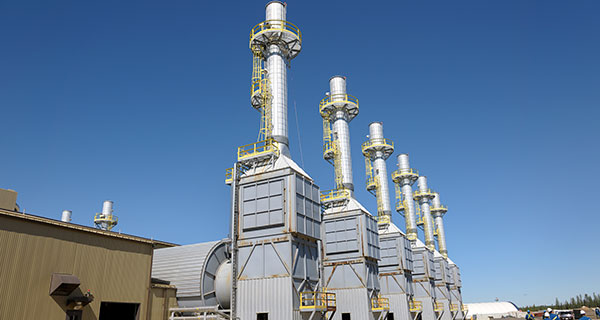Cenovus Energy Inc. is slashing its 2020 capital spending by a total of $600 million or 43 per cent “to enhance its financial resilience in response to the low global oil price environment that is expected to continue for an unknown period.”
The company also announced Thursday it is forecasting operating cost reductions of about $100 million and general and administrative (G&A) cost reductions of about $50 million compared with the initial December budget. Those will include salary reductions. Also, Cenovus is temporarily suspending its dividend.
“We are taking proactive steps to address the current business environment while continuing to focus on the safety of our people and assets and maintaining reliable performance at our operations,” said Alex Pourbaix, Cenovus President & Chief Executive Officer, in a news release. “It is challenging to predict the duration and depth of these unprecedented low commodity prices. We have positioned the company with ample liquidity and a strong balance sheet to manage through this unpredictable global downturn.”
The company said it had based its ability to provide a sustainable dividend from free funds flow on a West Texas Intermediate (WTI) price environment of US$45/bbl.
“In the context of recent commodity price forecasts and economic, market and business conditions in the oil and gas industry, Cenovus has decided to suspend its quarterly dividend,” it said.
“The remaining capital budget is focused on sustaining oil sands production and refining operations. Cenovus is confident the revised capital spend will be sufficient to ensure ongoing safe and reliable operations and adherence to regulatory commitments and will enable the company to proceed with necessary maintenance.”
The company said a decision has been made to roll back salaries across the company, with an emphasis on Board, executive and senior leader compensation. Effective May 1, 2020, Board members will receive a 25 per cent compensation reduction. The President & CEO will have his annual base salary reduced by 25 per cent, other executive team members will take a 15 per cent annual base salary reduction, Vice-Presidents and their equivalents in technical positions will receive a 12 per cent annual base salary rollback and employees at other levels will experience a graduated smaller salary impact.
“Our compensation philosophy is focused on alignment with shareholders, which is why we have a mandatory share ownership policy for senior leaders and an annual incentive program based on the company achieving its goals,” said Pourbaix. “The salary rollback, which will have the greatest impact on senior leaders, is a way to demonstrate the entire company is committed to addressing the challenges we face.”

